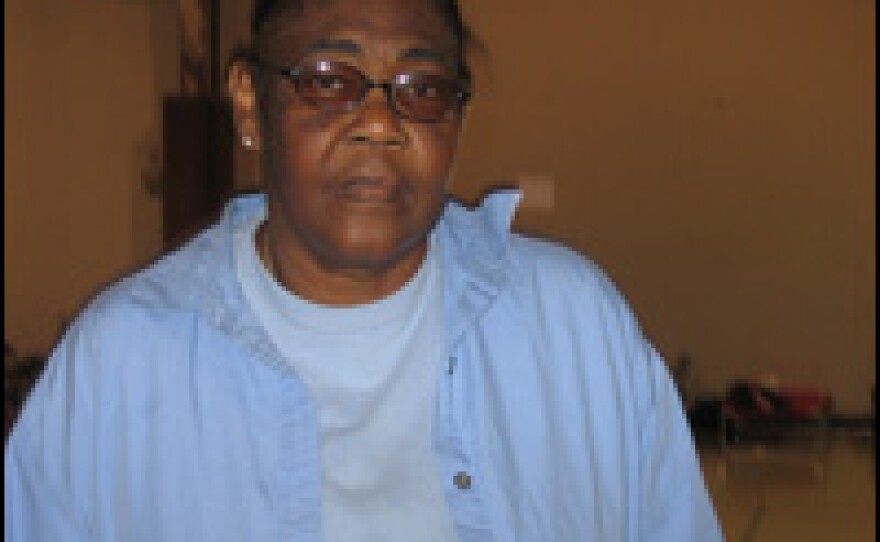
All over Texas, the Red Cross has opened shelters to house people whose homes were destroyed by Hurricane Ike.
About 42,000 people slept in the shelters Saturday night, and quite a few of them are still using the cots lined up in gymnasiums, schools and churches around the state — including the First Assembly of God Church in Brazoria, a small town about an hour south of Houston.
Throughout the day, people come through the front door of the church asking for food, ice and sometimes a place to sleep. They fidget, apologize and mumble their requests. Many of them look ashamed to be asking for help.
Dorothy Caldwell is the matriarch of a family of 15, all of whom rode out the storm in Austin until they ran out of money.
Caldwell said her family's home has no lights, their food has spoiled and "the house smells awful." So she brought her husband, kids, grandkids and great-grandkids to the church in Brazoria because, she said, it was their only option.
"Right now, I'm just having a hard time. It's not home, but it's comfortable," she says.
Caldwell works with senior citizens who need home care, and so do many people in her family. But the seniors have all evacuated, and until they return, the family has no income. Caldwell says she hopes FEMA will come through, but so far the agency hasn't answered the phone.
"I just have to take one day at a time," Caldwell said. "If they shut this down, I'm going back to my house, because we don't have another shelter open here."
Shelter supervisor Evelyn Palte says she thinks the shelter will be there for another few days, maybe a week. Palte, who flew in from her home in Ohio, also helped shelter Hurricane Katrina evacuees three years ago in an effort that housed 2,400 people at Louisiana State University. She said Ike is different, at least in this part of the state.
"Those people — that was different," Palte said. "They were homeless. They came up from New Orleans ... and they knew they had no place to go back to or anything to go back to. These people just need shelter and help for now. As soon as they can get back in their homes, they'll be back to normal."
On Tuesday evening, 16 people slept in the Brazoria shelter, which was prepared to take in 100 or more. About 900 meals were handed out. Palte said she was surprised more didn't stay the night.
"I think that a lot of people are afraid of looting; they don't want to leave their homes," Palte said.
Robert Hart decided not to leave his home, even though it's pretty much ruined. When the tree next to his trailer tipped over, the roots virtually upended the house.
"Right now, we're trying to go to a safe spot of the house, stay to one side of it, try to keep the critters out by plugging the holes," Hart said, fighting back tears as he picked up food from the shelter. "We're trying to do stuff to stay as a family and stay together."
He said he doesn't know what he'll do next, or how he will pay for it.
"No water, no electricity, basically no plumbing. All the insulation's been ripped out of the underneath of the house," Hart said. "I mean, you can go in one of the bathrooms and see straight through the tub to daylight because there's nothing underneath it. If our house falls apart, that's all we got. That's about it."
Copyright 2022 NPR. To see more, visit https://www.npr.org. 9(MDAzMjM2NDYzMDEyMzc1Njk5NjAxNzY3OQ001))







